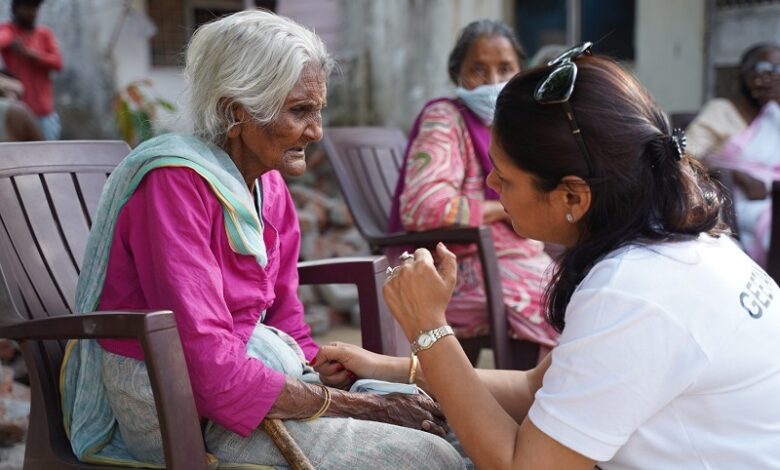India’s Elder Care agenda before 2047

• Elder Care issues need sensitisation
• Youth needs to be aware of future challenges
– Ratnajyoti Dutta -31 October 2023
Prime Minister Narendra Modi has set a target to make our beloved country a developed nation in 2047, the centenary year of the Independence.
Our relatively young nation is getting old day by day. India has over 104 million elders comprising 8.6% of the population, aged over 60, where females outnumber males, according to the last census in 2011. India has undergone a dramatic demographic transition in the past 50 years, tripling the elder count. This percentage is estimated to rise to 11.6% of the population, or 159 million or almost 16 crores, by 2025, according to the United Nations Department of Economic and Social Affairs.

The United Nations General Assembly designated October 1 as the International Day of Older Persons on December 14, 1990.
“Older persons are invaluable sources of knowledge and experience and have much to contribute towards peace, sustainable development, and protecting our planet,” said Antonio Guterres, UN Secretary General.
Currently, most geriatric OPD services are available at tertiary care hospitals, but they are readily available in urban areas. Old care facilities offered by the government- day-care centres, old-age residential homes, counselling and recreational facilities are a delicacy for rural India, not readily accessible. It is important to make geriatric healthcare services part of the primary healthcare services, to reach out to the population in rural areas.
Currently, the lack of geriatrics specialists in our country is a humongous cause of concern. There is no specialised course in geriatrics at most medical colleges in the country.

Geriatrics is a low-profile speciality that lacks the shimmer of academia and is the least favourite among medical students. Consequently, geriatricians are a rare breed in the medical milieu of India. We need to address this issue without delay. We must come together at social, corporate, and government levels to understand and find a solution to the various problems concerning the elderly. The effort should begin as an individual social responsibility and create a movement
In a country with a sizable population of senior citizens, the National Education Policy that sets the agenda for the education sector in the next two decades has an important catalytic role to play.
While we prepare to become a developed nation in the next two and a half decades, we also at the same time need to prepare our next generation to be sympathetic and caring towards the issues and problems of the senior citizens. Our approach towards economic development needs to be holistic and balanced.
There lies the importance of Elder Care as a subject which would help us realize the impact of selfless acts, expressing gratitude and earning blessings.
The most important critical issue faced by senior citizens is loneliness as their kids grow.
We need to adopt a holistic approach to address the burning problems of old age-related problems, including mental health issues.

Healing touch
William Shakespeare’s famous line from his play, Twelfth Night is worth recalling as we throw light on music therapy to combat the malady of being old and infirm, “If music be the food of love, then play on.” It is not without reason that the piano music of Mozart, Beethoven & Chopin and Rig Vedic hymns in classical tunes are played to keep the elders mentally alert.
As people turn into senior citizens, some degenerative challenges are bound to surface. These degenerative challenges are Dementia, Parkinson, Alzheimer, Osteoarthritis and Osteoporosis. Another common type of challenge older people face is related to electrolyte imbalance. It causes sodium-potassium imbalance leading to hallucination. Only the blessed or lucky persons escape these challenges as they grow old.
Moral education
The New Education Policy (NEP) has given top priority to impart moral education for the holistic personality development of a student who will be a responsible citizen in the future or, for that matter, when the country celebrates the 100th Year of Independence in 2047.
We, who are middle-aged, need to make our younger generation aware of the problems of the elders so that they develop the right kind of attitude towards the issues and challenges of elder care in India.
[The writer is a Delhi-based senior journalist.]





